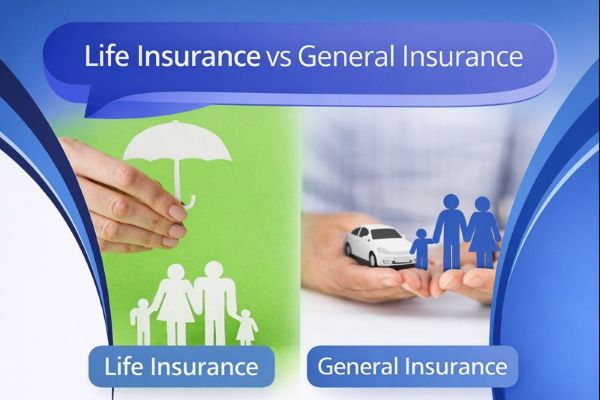Life Insurance vs General Insurance: What’s the Difference? | Understanding insurance options is essential when planning for your future and protecting your family. While both life and general insurance offer protection, their purposes, structures, and benefits differ. Choosing the right type of cover depends on your financial responsibilities, lifestyle, and long-term goals.
What Is Life Insurance?
Life insurance is designed to provide financial support to your family or dependents if you pass away during the term of the policy. The cover is typically arranged to:
- Pay off your mortgage
- Support family living costs
- Cover funeral expenses
- Provide a lump sum to help your loved ones adjust
Life insurance comes in various forms, including term life, decreasing term (popular for mortgages), and whole of life. If you have a mortgage or children, life cover is often considered essential. To explore more, visit our Life Cover page.
You may also wish to consider Mortgage Protection Insurance, which is designed to pay off your mortgage balance if you pass away during your loan term.
What Is General Insurance?
General insurance protects your assets against loss, theft, damage, or liability. It covers everything unrelated to your life or death. The most common types of general insurance include:
- Buildings insurance (often mandatory for a mortgage)
- Contents insurance
- Car insurance
- Travel insurance
- Landlord or tenant insurance
For mortgage holders, buildings insurance is typically required by lenders to protect the structure of the home. This ensures that, in the event of a fire, flood, or structural issue, the cost of rebuilding or repairs is covered. Read more about Buildings & Contents Insurance.
Unlike life insurance, general insurance claims can usually be made multiple times during the policy term, depending on the circumstances and cover limits.
Key Differences Between Life and General Insurance
| Feature | Life Insurance | General Insurance |
|---|---|---|
| Purpose | Protects family after death | Protects property or possessions |
| Type of payout | One-time lump sum | Multiple claims (based on events) |
| Term | Usually long-term | Typically renewed annually |
| Claims process | Paid on death (or terminal illness) | Paid after damage or loss |
| Examples | Mortgage life cover, family cover | Home, car, contents, travel |
Both types of insurance are important. Life insurance protects your people. General insurance protects your possessions.
Which Cover Do I Need for My Mortgage?
Most UK lenders require buildings insurance before releasing mortgage funds. While life insurance is not legally required, it is strongly recommended for anyone with a mortgage and dependents. It ensures the outstanding mortgage balance is paid off in the event of your death.
If you’re unsure which cover is suitable for your situation, it helps to “Find Mortgage Advisers” who can assess your needs and provide tailored recommendations.
Making the Right Choice
When deciding between life insurance and general insurance, remember:
- They serve different purposes, so most homeowners should have both.
- Start with what your mortgage lender requires (usually buildings insurance).
- Then evaluate your personal responsibilities, family, income, and debts to determine if life cover is needed.
- Review policies annually or whenever your circumstances change.
If you’re a broker looking to support clients with protection solutions, you can “Join our Mortgage network” and access tools to help you grow your advisory services.
Thank you for reading our “Do I Need Life Cover for a Mortgage? | Connect Mortgages” publication. Stay “Connect“-ed for more updates soon!







